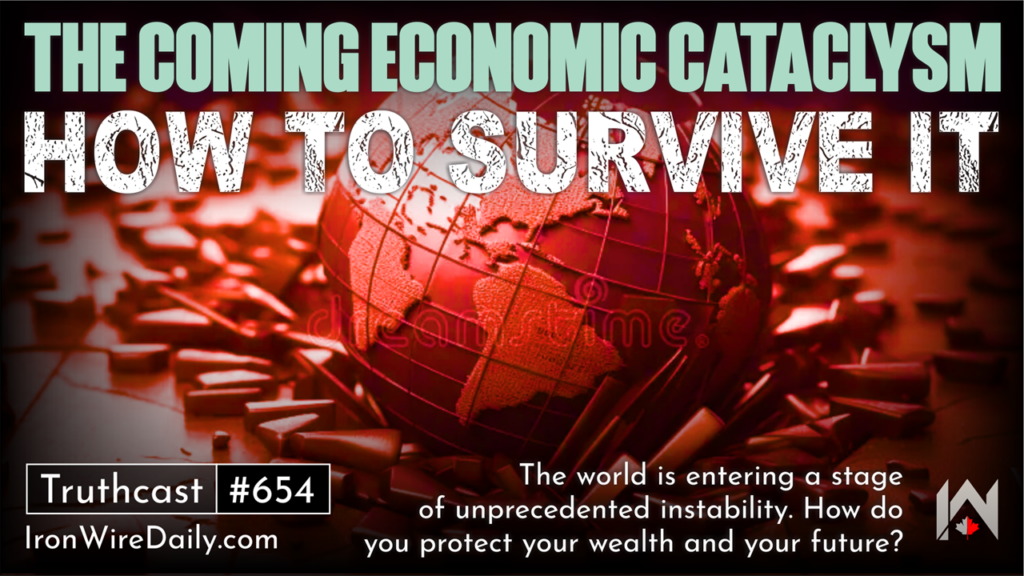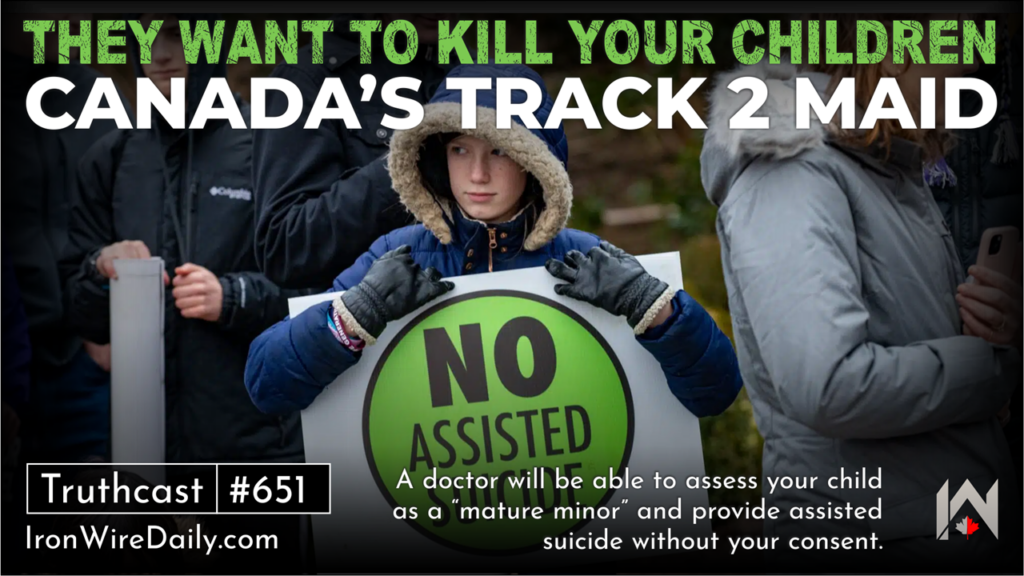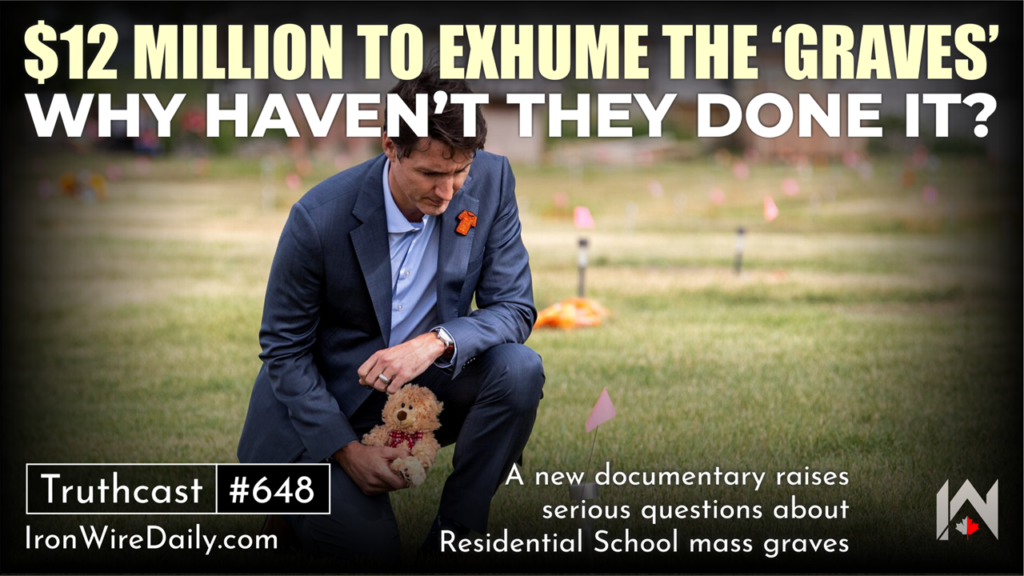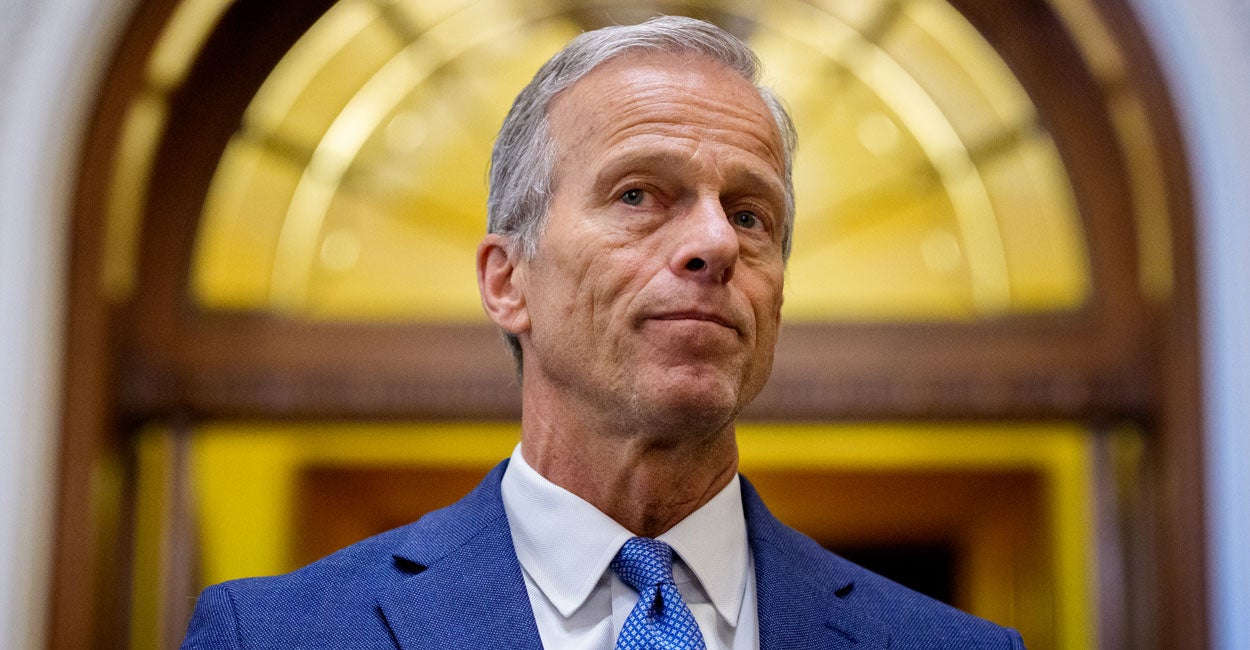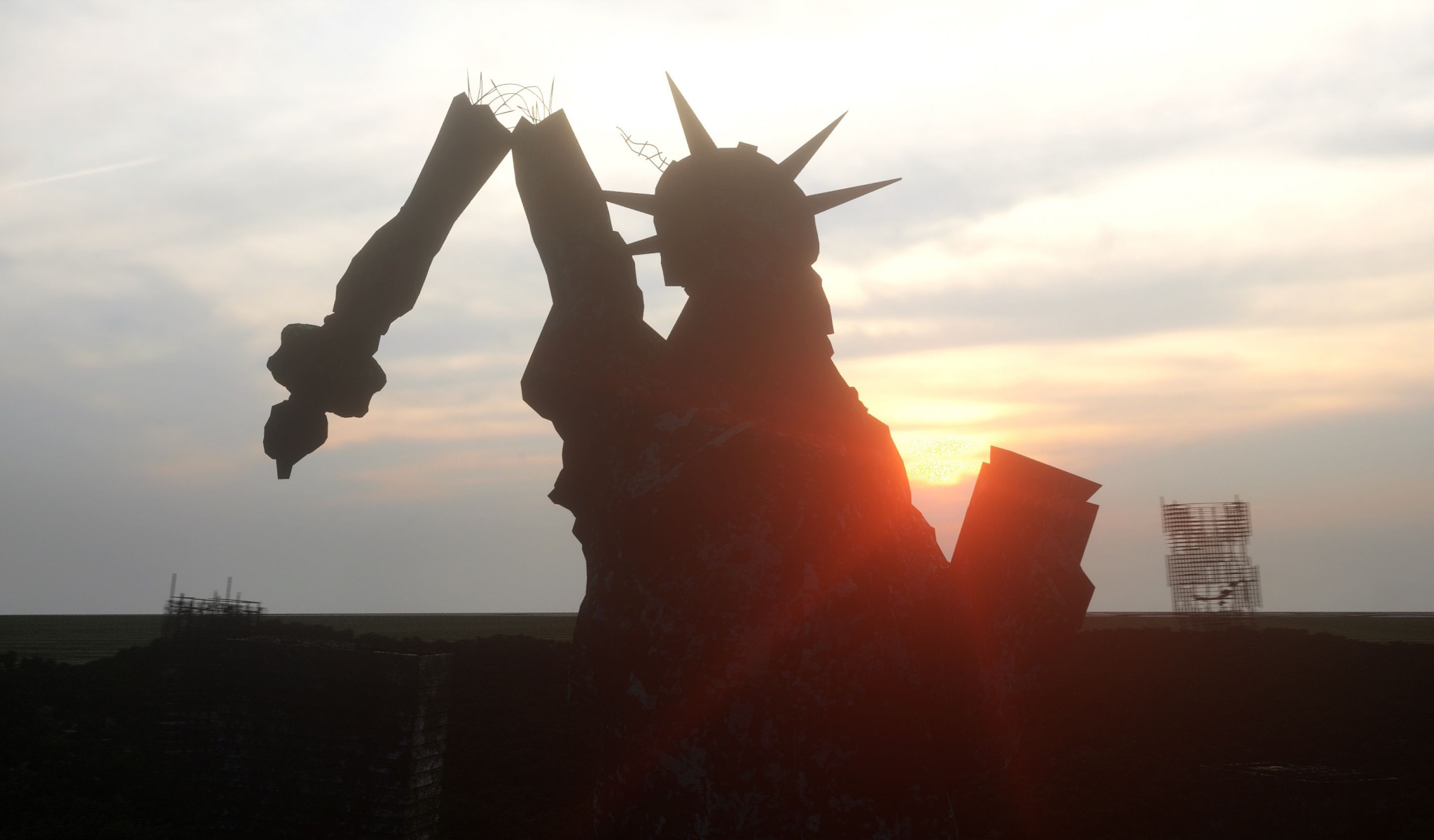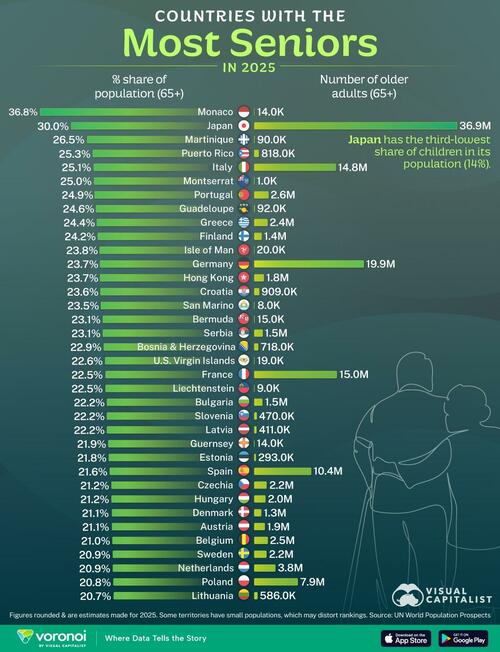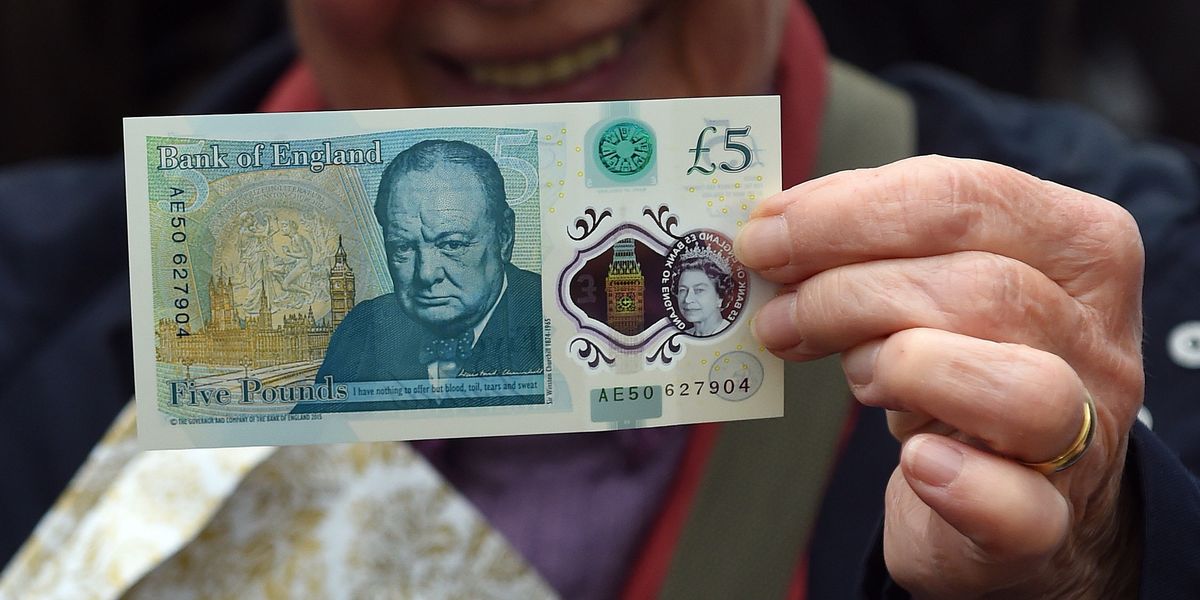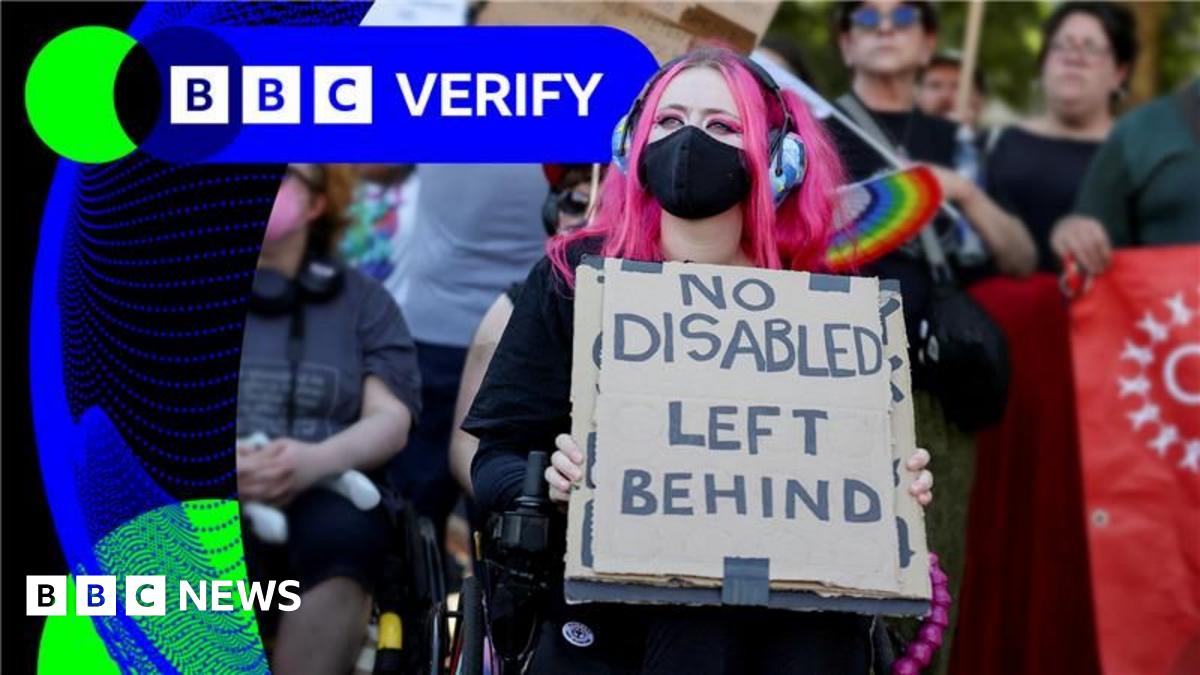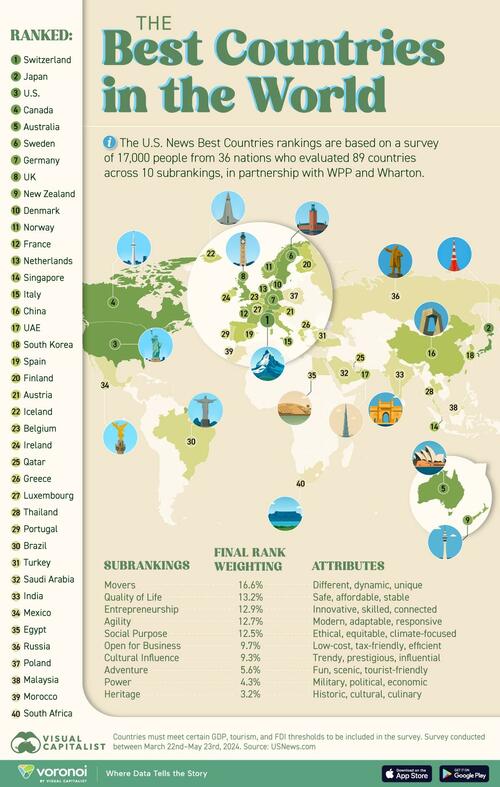(0:00 - 1:02)
In just nine years, Justin Trudeau has doubled Canada's debt, while increasing taxes and leaving Canadians with nothing to show for it. Canada's debt clock stands at $1.2 trillion, and that debt grows by over $100 million every day. If you were born in 1975, your lifetime tax burden would have been $404,000.
If you were born just 30 years later, in 2005, your lifetime tax burden is $2.27 million. Suffering under a crushing tax load that takes half their earnings every year, many working Canadians are now turning to food banks just to feed their families. And the truly shocking thing is that the Canadian Taxpayers Federation has proven that the budget can be balanced, without costing Canadians what services they have left, and leaving them with substantially more money in their pockets.
(1:03 - 1:49)
The CTF has been sounding the alarm on taxes in Canada since 1990, and is pushing back, most recently with a lawsuit against Trudeau's government over Revenue Canada implementing new capital gains tax changes that will further impoverish Canadians, without those changes having been approved by Parliament, a move which is illegal under our constitution. Kris Sims is the Alberta Director of the Canadian Taxpayers Federation, and she joins me today to blow away the smoke our federal government is using to attempt to hide the true tax situation, and how it is destroying our country. Kim, welcome to the show.
(1:50 - 2:04)
Thank you so much. I really appreciate you taking your time for this, because there's been a lot of smoke and mirrors from the Liberal government over taxes and what they're doing. You've joined me today to make this clear to our viewers about what really is going on.
(2:04 - 2:26)
And I wanted to start, though, with some statistics that alarmed even me. One of the initiatives you guys have now done is another site called generationscrewed.ca, which of course is aimed at younger people to inform them of, yeah, just how screwed they are. There's this wonderful short little video right on the front page, and I just, I was speechless.
(2:26 - 2:44)
The video says, if you were born in 1975, your tax burden is $404,000. If you were born 30 years later, in 2005, your tax burden is $2.27 million. $2.27 million over the course of your life that you were going to have to pay in taxes.
(2:45 - 3:09)
Yeah, from start to finish. And you got to keep in mind if you add all that up, right? So quite often a group like the Fraser Institute will put out a yearly survey where they report on how much we're paying in taxes, and it's roughly half. So, put another way, if you close your eyes and picture whatever lands in your bank account every two weeks, or if you still paid at the paper check or something, imagine what lands in your bank account every two weeks.
(3:10 - 3:19)
Double it. That's how much the government is taking from you. Like, imagine what you could do with double the amount of net income you take in.
(3:20 - 3:35)
Could you afford better food? Could you save money for a down payment? Could you actually get the repair done on your house you need to do? Could you save for your kid's education after school? Think about that money. That's how much government takes from us. So, that's various levels of government, of course.
(3:35 - 3:44)
That's municipal, provincial, and federal. But yeah, combine those three, you know, dragon heads, and you put it over the lifetime of a working person. Yeah.
(3:44 - 3:56)
So, that's why it's called Generation Screwed. That's our youth group. And basically their job is to spread the word about lower taxes, less waste, and more accountable, smaller government on university campuses.
(3:56 - 4:10)
Because as we all know, it's often where university students are force fed this nonsense of big government, big spending, utopian dreaming. And so, we try to counter that with Generation Screwed. Right.
(4:10 - 4:19)
And of course, we're basically, we're not getting anything for it anymore. They're taking half of our income while they're borrowing record amounts. Yeah.
(4:19 - 4:25)
And they still can't provide Canadians with basic services like decent health care. Oh, it's brutal. I know.
(4:25 - 4:31)
When you put it that way, and so, I've been in the game for a long time. I'm a child of the 70s. And so, I remember when Reagan first won.
(4:32 - 4:43)
That's dating me. So, you start thinking about what are we getting for this in return? Okay. Well, at the municipal level, people typically expect their city governments to do three things.
(4:43 - 5:08)
Keep the streets safe, clean, and in good repair. Is that happening? Do you feel safer walking around your streets? Is it cleaner? Are all those potholes filled in? Or are your local city councillors trying to save the world at some up with people conference? Or passing stupid laws that make your property taxes go up? It's usually going to be the latter. Same thing at the provincial government when it comes to actually the function of health care.
(5:09 - 5:30)
When's the last time that you had a great family doctor that you can trust and go back and forth with if you have a family doctor? When's the last time you went to the emergency room and you didn't notice that it was full of non-emergency people and you found it was really great care? Federal level, crossing the border, trying to get a passport, something like that. Good luck. So, yeah, unfortunately, I'm not trying to be grim.
(5:31 - 5:40)
We're paying half of our salaries to various levels of government and getting terrible services in return. Right. And it's not just income tax.
(5:40 - 5:48)
It's other taxes as well. Give us a short list of what taxes we're being subjected to that's adding up to that 50% of our income. Oh, it's brutal.
(5:49 - 6:00)
So from the moment you wake up in the morning, right? You make your coffee, you throw the filter in the garbage or, you know, the compost or whatever. Boom. There's your municipal level, right? There's your municipal taxes.
(6:01 - 6:10)
Walk out the door, step foot on your lawn. There's your property taxes, right? Just envision this, OK? Get into your vehicle. That's your registration cost.
(6:10 - 6:20)
And if you're in, say, British Columbia and you have government-controlled auto insurance, boom. There's your next level of the government, the state, reaching into your pocket. You hit the road.
(6:21 - 6:28)
If you're municipal still, there's municipal taxes. If you hit provincial highways, there's your provincial taxes. You start cycling through it this way.
(6:28 - 6:40)
Now you start adding big federal. So let's just start with provincial still. We're paying, quite often, in most of Canada, you're paying income tax to your province and a sales tax to your province.
(6:40 - 6:49)
Not here in God's country of Alberta, thank you very much. But most of the rest of Canada, they all have to get nuked with a sales tax. So that's provincial.
(6:49 - 7:00)
And then there's all sorts of fees, of course, that they hide, right? They call it a fee or a levy or some nonsense. It's a tax. If the government takes money from you and it's non-optional, that's a tax.
(7:01 - 7:19)
So then you get to the federal level and boom, my gosh, the income tax costs coming out the door. And then we have things like capital gains taxes, which they've just hiked without representation, by the way. And the big one, as I'm sure your viewers and listeners are aware of, and that's right here on my t-shirt, is the carbon tax.
(7:20 - 7:31)
And the carbon tax is like this Hydra. It's this multi-headed monster. Can I go through the various levels of this thing, how you're hit with this thing? I would love you to, please do.
(7:31 - 7:38)
Okay. So it's going up on April 1st. It's like the worst April Fool's joke ever.
(7:38 - 8:01)
It goes up automatically every year on April 1st under this current Trudeau-slash-liberal government. So as of April 1st, after that increase, filling up a minivan costs you $15 extra, just in the carbon tax, not including GST, which is added after. Filling up a pickup truck, $25 extra.
(8:02 - 8:16)
Filling up a big rig truck with diesel. If you're a trucker and you deliver everything we eat and use, thanks very much. You're paying about $250 extra to fill your big rig tanks with diesel in the one carbon tax.
(8:16 - 8:28)
And I'm specifying because we actually have about three in Canada, plus sales tax. So let's move on from the trucker. Say you're a farmer and you have to keep your chickens and your pigs and your cows alive.
(8:28 - 8:39)
You got to heat the barns. You're paying a carbon tax on your natural gas and your propane. The farmer also, if you add it all up, the parliamentary budget officer did the math, by 2030.
(8:40 - 8:56)
So in five years, that's going to cost Canadian farmers a billion dollars. Truckers, just last year, this number blew my mind. Just last year, long haul trucking, not including interprovincial short haul trucking, just long haul, $2 billion.
(8:58 - 9:06)
It gets worse, I know. Then you say you go shopping, you go to like a building, like a grocery store. They got to keep the lights on.
(9:06 - 9:13)
They got to run things hot and cold all the time. They're usually going to be using natural gas to do that. They pay the carbon tax.
(9:13 - 9:25)
In some provincial jurisdictions, like Alberta, institutions pay the carbon tax, like hospitals and schools. It is the craziest thing. You get home and you try to hide from these taxes.
(9:25 - 9:45)
Home heating. So the average household here in Alberta, if they're heating with natural gas, which about 90% of us do, that average household is going to pay about $400 extra, just in the carbon tax, for the sin of heating your home in Canada. So that is the multi-layered layer cake from hell.
(9:45 - 10:03)
That is the carbon tax. And then you get into other elements of federal taxes, like payroll taxes, elements like that. But needless to say, as I've described through all those layers, all the way from municipal, all the way up to federal things, federal taxes, this is why it's taking half our income.
(10:03 - 10:11)
Right. Now we're going to get into some of those other taxes later, but I want to stick with the carbon tax for just a minute. We'll talk about the farce of the carbon tax rebates in a minute.
(10:12 - 10:38)
One thing that's really bothered me is the government refusing to tell us how much money they're generating from the carbon taxes. Does the CTF have any data on that? Because the government doesn't want us to know. So to add insult to injury, not only are they screwing us with the carbon tax on our essentials, like driving to work, heating your home and eating, are not options that we can just opt out of.
(10:38 - 10:52)
OK, there's not like choosing between ice hockey and field hockey here. These are essentials. It's about, last time I checked in the federal government's budget document, it was about $13 billion.
(10:54 - 11:09)
But the insult part that I was going to allude to there is that they didn't call it the carbon tax income. They called it something ridiculous, like climate fee that will be rebated fully to Canadians. I'm out.
(11:09 - 11:13)
I'm not kidding. It's gross. Like George Orwell is turning in his grave.
(11:14 - 11:24)
So I'm from British Columbia originally, born and raised out there. I worked on Parliament Hill for like 20 years. But before I was the Alberta director for the CTF, I was the BC director.
(11:24 - 11:38)
The BC government has been screwing people with the carbon tax since 2008. They started this trend. To be clear, though, at least in their budget document, they list it as the carbon tax revenue.
(11:38 - 11:46)
Like it's right there spelled out with all those letters. And so they were doing that in their budget year over year. So you could at least see it right away.
(11:46 - 11:55)
I had to dig and get super creative to find it in the Trudeau budget, which, by the way, is way too long. Like it's hundreds of pages. Yes, it is.
(11:56 - 12:04)
A federal budget should be about 85 pages long, mostly math and tables. This past year. What's that? 497 pages this past year.
(12:05 - 12:08)
Ridiculous. Ridiculous. And most of it is verbiage.
(12:08 - 12:23)
It's not numbers and tables and data. I'm sorry if you want to push for saving the world in some way, do that in another document. This is a budget that we're all supposed to be able to read, but they fill it full of, you know, unicorn feathers and baffle gobs.
(12:23 - 12:27)
So you can't find the carbon tax. Right. And they hide other things in that budget too now.
(12:27 - 12:33)
Oh, yeah. Amending other bills that have nothing to do with the budget. Isn't it sick? I know.
(12:33 - 12:43)
And then that's when they start shoving it through. They think they can hide it in there. Now, fortunately, we've got good people who are like yourself, who are reading it and they don't get away with it, but they're certainly trying.
(12:43 - 12:51)
They do. My dear friend, Franco Terrazzano, is the federal director of the Canadian Taxpayers Federation. Super great guy, really into baseball.
(12:51 - 13:07)
Don't tell anybody, but he's got two master's degrees, including in economics. So he's this friendly guy on video, but when he gets down to reading a budget, he can just read it inside and out. And so between him and our investigative journalist, Ryan Thorpe, they dig up most things.
(13:07 - 13:47)
I'm sure there is still some subterfuge in there that we have not yet found because it's that bad. So what is the final tally roughly? I mean, based on the research you guys have done, how much money is the federal government making every year from this carbon tax? Federally, it's around, so as of this past fiscal year, the latest data we have was, if I recall correctly, just over $12 billion, close to $13 billion. And if you want to kind of figure out how much money that is, it costs about a billion dollars to build a new hospital, an entire new hospital.
(13:48 - 13:51)
Yes. So just picture that. Right.
(13:51 - 14:16)
So now if, let's hope, Pierre Poilievre gets elected and he follows through on his threat to ax that tax, how much money is that going to save the average Canadian every year? There is a major stock market crash coming that will rival the crash of 1929. But there is a way to not only protect your wealth, but profit in the coming crash. The stock market chart today looks exactly like the charts prior to October 1929.
(14:17 - 14:36)
Banks are disastrously over-leveraged and several major US banks have already failed. And the CDIC, the Canadian Deposit Insurance Corporation, doesn't have nearly enough money to cover depositors. If you have money in the bank or the stock market, it is time to get out.
(14:37 - 15:02)
Governments and corporations around the world are buying up precious metals in record amounts because they know the coming crash will make their other assets nearly worthless. You can buy precious metals at wholesale prices through New World Precious Metals at commissions substantially below other Canadian brokerages. And you can even transfer savings in your RRSP tax-free.
(15:03 - 15:22)
To get more information, use the link below this video to contact New World Precious Metals. They will answer any questions you may have. You may also wish to contact Adrian Spitters, a personal financial consultant who successfully predicted the stock market crashes of 2000 and 2008.
(15:23 - 15:57)
You will find Adrian's contact information below as well. Finally, if you want more information on the coming crash and what you can do to protect yourself, your family, and your assets, see my most recent quarterly update with my team of financial experts at ironwolfreport.com. By clicking the link below to contact New World Precious Metals, you will also be helping to support our efforts to bring Canadians the truth as we are an approved affiliate partner. That's a great question, and it is a little bit complicated.
(15:58 - 16:17)
So folks might remember when the Parliamentary Budget Officer first came out with his numbers about how much this was costing. It was costing after rebates when he first analyzed it, the average Albertan, around $900 net after their so-called rebates. Then he came back and revised the number, and it was still a crazy amount of money.
(16:18 - 16:39)
It was like $300 or $400. But I need to stress that the carbon tax, as I just described it, as it leeches through and corrodes the economy, costs people a hidden amount of money. So it's not just, you know, Marcy with her little Mazda hatchback that's spending, you know, $10 extra to fill up the carbon tax.
(16:40 - 16:49)
It's when she's buying her food. It's when she's buying her clothes that have been trucked here. It's when she's having to pay for municipal services and provincial services, and, and, and, and.
(16:50 - 17:09)
It's all that layering. So it's really difficult to give you an exact amount on that, because the carbon tax is basically a tax on everything, often because of the trucking element. So in Canada, if you look around the room that you're in, whoever's listening or watching this, look around.
(17:09 - 17:24)
Pretty much everything around you has been on a truck once or five times before it got into your hands. You've just got to start doing that math and adding all of that up. So the short answer is, it's really hard to know, but it's a lot.
(17:24 - 17:41)
Keep in mind also that the rebates don't cover the GST, which is hundreds of millions of dollars per year that the government is pulling in just with the GST on the carbon tax. Right. No nickel of that is.
(17:41 - 17:48)
While we can't really put a final figure on it, it's certainly well in excess of the $900. I think so. As a tax alone.
(17:49 - 17:59)
Yeah. Okay. And so, and it's not just, so yeah, we want, we want, if Pierre Poilievre becomes prime minister, we want him to scrap the carbon tax like before lunch, like first day.
(17:59 - 18:08)
Frankly, we want the liberal leadership candidates who are coming out all of a sudden to try to replace Trudeau. We want them to say, I'm scrapping it right now. Oh my God, this is a terrible failure.
(18:08 - 18:16)
Because we have a deadline coming up April 1st. So everybody's tax bill is going to go up April 1st. We have got so short a time.
(18:16 - 18:28)
We want everybody to kill this thing. But let's say for argument's sake, that it's the conservatives who win and they scrap the carbon tax. You will see a nearly immediate reduction at the pump.
(18:28 - 18:49)
So you'll see it drop by about 13 cents or so. But it'll take a little while for that, the trucking example that I gave you, the home heating, that sort of thing, to finally trickle down and filter through and save people money. And it's not just the carbon tax is helping to make everything cost much more, but it's also inflation.
(18:49 - 19:11)
And the Trudeau government is responsible for the inflation too, because they printed hundreds of billions of dollars out of thin air while they locked down our means of production. So we had the perfect storm of crazy money printing and no widgets being made. So it's both things.
(19:11 - 19:25)
It's the carbon tax plus inflation that's costing us. And I do want to talk about that inflation, but I have one more question about the carbon tax. And that has to do with the, to me at least, blatant illogic of imposing this carbon tax and then turning around and telling cities, well, we're going to give you a rebate.
(19:26 - 19:32)
This makes no sense whatsoever. It's clearly smoke and mirrors. I've heard from lots of people who said, well, I've never gotten a check.
(19:33 - 19:42)
My wife and I have certainly never gotten a check. I've never seen a dime of rebate. It almost seems to me like, well, I'm sorry to say it, but it seems like a blatant lie.
(19:44 - 20:10)
So there's a few things there. One, I don't think I have either, but who the heck knows? Maybe it's bundled with like GST rebates or what we used to call baby bucks back in the 80s. Who knows? The long and the short of it is, it defies common sense to believe the government when they say, give us a $20 bill and we'll give you back a 50 at no cost to you.
(20:11 - 20:16)
That's not how this works. That is not how money works. And that is not how government works.
(20:17 - 20:29)
Government is not an investment. They are not a wealth generating mechanism. So when we give them our money, they do not turn it around for value on the dollar.
(20:30 - 20:45)
That's not how this works. So anyone who believes that, like I've got oceanfront property in Lethbridge to sell you, okay, should defy common sense. Second, again, the parliamentary budget officer went through this with a fine tooth comb.
(20:46 - 21:13)
The average Canadian family, when considering all of the costs of the carbon tax, is out money, net, even after rebates. To your point on the dishonesty element, if I can point this out for folks who forget, the carbon tax was supposed to be a deterrent for using oil and gas products. That's the entire point.
(21:14 - 21:56)
The entire point of the carbon tax, when it was started by both the BC government and then federally, because Trudeau used BC as a template, was to stick you, you know, the whole carrot and stick, was to hit you with a stick whenever you dared use an oil and gas product. It was this idea, this utopian idea, I remember back when they first launched it in 2008, the BC government promised us many things. They said that the carbon tax would stop at $30 a ton, that it would be revenue neutral, that it would create a plethora of alternative, affordable, abundant energy sources, and that it would make emissions go down and make us hit our targets.
(21:57 - 22:10)
None of those things is true. Not one. What they ran into here, frankly, is that Canadians have been beaten into a corner by this carbon tax, and they don't have an alternative.
(22:11 - 22:31)
We don't have a plethora of affordable, abundant, alternative energy sources waiting at our doorstep. We don't. There are some people who are able to do super intense things, like only heat with an electric heat pump, and they go solar, and they use their bike pedals, and they live off-grid.
(22:31 - 22:37)
For sure, there are some people like that. I lived on Vancouver Island. I know they exist.
(22:37 - 22:52)
But they are not the majority of working families in Canada. Most of us rely on a gas or diesel-powered vehicle. Most of us have to go to the grocery store to buy our food, which is raised by farmers and brought to us by truckers.
(22:52 - 23:06)
We can't live on the carrots that we grow on our balcony. Most of us have to heat our home with something like a natural gas or a propane. So we have been beaten financially into a corner by this carbon tax, and there's no way out.
(23:07 - 23:27)
The government just keeps hitting us. And so I think they had to realize and change their narrative of saying, oh, this is just kind of to redistribute the wealth and give more money back to the poor people and take it from the rich people. And they've moved away entirely from the environment argument.
(23:27 - 23:39)
Why? Because they suck. Because they haven't met any of their targets. So the BC carbon tax, when it was launched, it said it was going to reduce their emissions by something like 30%.
(23:39 - 23:47)
Below 2007 levels? Sure didn't. They're above 2007 levels. They totally missed that target.
(23:48 - 23:58)
Federally, we keep on missing our emissions targets too, including from the Environment Commissioner. An independent Environment Commissioner saying, guys, we are not hitting this target at all. So they were kind of stuck.
(23:59 - 24:26)
And that is why you heard Prime Minister Justin Trudeau say jaw-dropping things like the only type of person who feels the cost of the carbon tax, meaning poor people and low-income people and middle-income people get more back than they pay in. He actually said repeatedly, the only type of person that feels the cost of the carbon tax is someone who lives in a big mansion with an indoor pool with three big personal cars. Like how he was raised.
(24:27 - 24:36)
Yes. And it's totally crazy. Like you ask the average person who's looking at their heat bill and they've got a $40 charge from the carbon tax there.
(24:37 - 24:44)
They're paying it. They know they're paying it. But Trudeau doesn't know that we're paying it because he's never had to pay a bill in his life.
(24:44 - 24:58)
So frankly, this is why they've had to switch their narrative from this is going to save the planet. Oops, no, it's not saving the planet. Oh, this is going to, you know, create, I don't know, blue hydrogen or something that we're all able to use.
(24:58 - 25:08)
And then it doesn't. And now it's trickled down to, oh, but, you know, poor people deserve their rebates and that bad man wants to get rid of your rebates. This is all just, like you said, smoke and mirrors.
(25:09 - 25:15)
Right. So now let's talk about that debt because you mentioned this earlier. Sorry, I cannot go with the carbon tax for three hours.
(25:15 - 25:23)
No, that's quite all right. I'm absolutely certain that everything you have said has just resonated with the viewers. We're all very upset about this as we should be.
(25:23 - 25:32)
Okay. But now let's talk about the debt and I want your clarification on something to make sure that I didn't misunderstand something. There's a difference between the term federal debt and national debt.
(25:33 - 25:43)
Federal debt is 1.2 trillion. Yes. But national debt is 2.1 because you have to add in all the provincial debts as well.
(25:43 - 25:45)
Oh, I see what you're doing. Okay. Yeah, you could.
(25:46 - 25:50)
Am I correct? You could. So what do you look at 1.2 trillion? That's not really the number.


